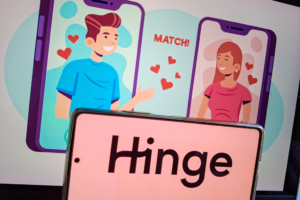Why Critical Thinking Is Essential in the Digital Age to Combat Misinformation with Proper Oversight
Young people navigate an increasingly complex online environment in today’s digital age. The internet provides limitless opportunities to explore, learn, and connect, but it also presents significant risks. From misinformation to privacy violations and cyberbullying, the challenges are growing. Critical thinking skills and fact-checking have become essential tools to stay safe in this evolving landscape.
This comprehensive guide explains why these skills are critical for young people, provides actionable strategies to develop them, and highlights the long-term benefits of fostering media literacy and a safer online presence.
The Growing Challenges of the Digital World
The online world has become an integral part of life for young people, with social media platforms like TikTok and YouTube dominating their daily routines. These platforms are designed for entertainment and engagement, but their algorithms can amplify misinformation and harmful content.
Why Young People Are Particularly Vulnerable to Stay Safe Online
Young people, especially those in their formative age, are still developing the ability to critically assess the information they encounter. Their online experience often includes exposure to false information, manipulative tactics, and unsafe interactions.
Factors contributing to their vulnerability include:
- Trust in digital platforms: Many young people assume that the information they see on familiar platforms is reliable, even when it’s not.
- Ease of access to content: The sheer volume of content on the internet makes it difficult to discern what is accurate.
- Lack of oversight: Without consistent guidance from a parent, teacher, or other adult, young people may fail to recognize misinformation or harmful content.
Why Critical Thinking and Fact-Checking Are Essential in the Digital Age
The ability to think critically and verify information is vital for navigating today’s digital environment. These skills equip young people to identify and avoid the pitfalls of the online world, making them a crucial part of digital safety.
Combating Misinformation
Misinformation spreads quickly and can have serious consequences. Teaching young people to question the source of information and look for context helps them recognize when they’re being misled. Fact-checking ensures they aren’t contributing to the spread of false claims.
Strengthening Online Privacy
With the rise of phishing scams, identity theft, and unsafe sharing practices, online privacy is more important than ever. Young people need to understand how to:
- Protect their personal account information.
- Avoid oversharing sensitive details on social media.
- Set up privacy controls on their devices and apps to maintain a secure online presence.
Fostering Responsible Engagement
By learning to critically assess information, young people can engage responsibly with social media and other platforms. This not only enhances their online experience but also contributes to a healthier online environment for everyone.
Practical Strategies to Equip Young People with Critical Thinking Skills
Teaching critical thinking and media literacy doesn’t have to be overwhelming. These strategies can help parents, educators, and organizations empower young people to navigate the digital environment with confidence.
Encourage Real World Problem Solving
Introduce scenarios that require young people to critically assess information. For example:
- Show them a piece of misleading content and discuss why it’s untrustworthy.
- Use fact-checking tools to evaluate the reliability of an online source.
Promote Privacy Awareness
Teach young people to safeguard their online privacy by:
- Creating strong, unique passwords.
- Limiting the amount of personal information they share online.
- Using tools like password managers and cybersecurity resources.
Collaborate and Educate
Work with schools and community organizations to develop programs that prioritize digital literacy. Collaborative efforts ensure that young people learn to recognize and avoid misinformation while also building their ability to make informed choices.
Overcoming Barriers to Digital Safety
Despite the importance of teaching digital safety, there are several obstacles to overcome:
- Resistance from young people: Some fear they’ll lose access to their favorite platforms if they report concerns.
- Lack of adult knowledge: Many parents and educators struggle to stay informed about rapidly evolving tech trends.
Building Trust and Encouraging Open Dialogue
To address these challenges, adults need to:
- Foster open communication about digital habits and concerns.
- Empower young people to share their experiences without fear of punishment.
- Provide clear guidelines for safe online behavior.
The Long Term Benefits of Critical Thinking and Fact-Checking
Developing critical thinking skills and mastering fact-checking not only equips young people to stay safe in the digital age, but also provides lifelong advantages. These skills foster better decision- making, enhance resilience against misinformation, and create a foundation for personal and professional success. Below are the key long term benefits of nurturing these abilities:
1. Improved Decision Making Skills
- Critical thinking enables young people to analyze content from various sources, identify bias, and assess credibility.
- By evaluating claims and understanding context, they can make more informed and responsible choices both online and offline.
- This ability translates to academic, career, and everyday life, empowering them to navigate challenges effectively.
2. A Safer and More Responsible Online Presence
- Mastering digital literacy helps young people create a secure online environment by avoiding risky behaviors and interactions.
- Understanding online privacy best practices ensures they can protect sensitive information and avoid falling victim to scams.
- As they adopt respectful and responsible behavior, they contribute to a healthier, more trustworthy digital ecosystem.
3. Combating the Spread of Misinformation
- By recognizing false information and knowing how to verify facts, young people help curb the spread of misinformation or harmful content.
- They also learn to challenge unreliable sources, ensuring that their interactions are grounded in truth and integrity.
- This proactive approach benefits not only the individual but also the larger digital community.
4. Enhanced Academic and Professional Success
- Fact-checking and critical evaluation of information are invaluable in academic research and professional environments.
- These skills teach young people how to critically assess information, boosting their problem solving and analytical abilities.
- Employers increasingly value individuals who can navigate complex data and maintain ethical standards in a digital workplace.
5. Strengthened Personal Resilience
- By learning to question and verify, young people develop the confidence to resist manipulation, misinformation, and online peer pressure.
- This resilience helps them remain true to their values and make independent, well-considered decisions.
- It also reduces their vulnerability to cyberbullying, scams, and other online threats.
A Call to Action for Parents, Educators, and Society
The digital age offers incredible opportunities, but it also demands that we equip young people with the tools to navigate it safely. By prioritizing media literacy, fostering critical thinking, and teaching fact-checking, we can ensure a brighter, safer future for the next generation.
It’s time for parents, educators, and organizations to collaborate and take responsibility for helping young people develop the skills they need to thrive in the online environment. Together, we can foster an internet that is not just informative but also safe, empowering, and enriching.



